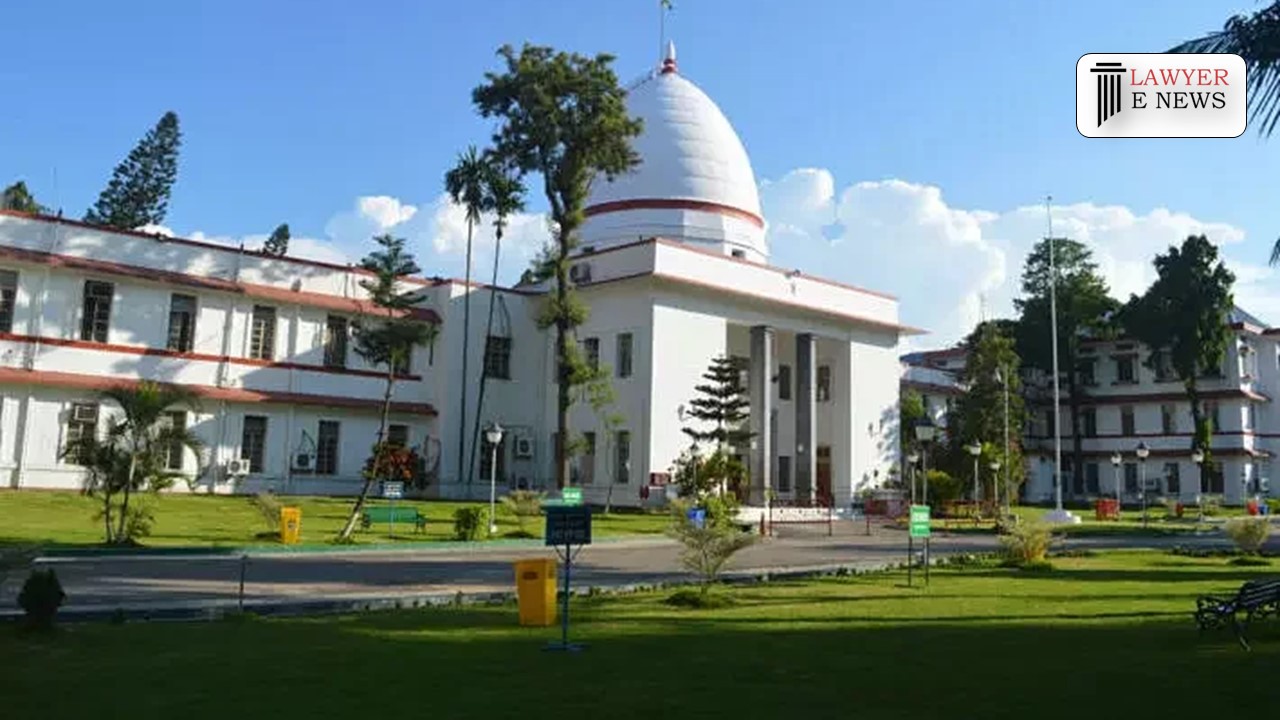-
by Admin
15 February 2026 2:36 AM



Court Upholds Validity of Remarriage Post Appeal Period in Light of COVID-19 and Family Responsibilities
The Gauhati High Court has dismissed an application seeking condonation of a 122-day delay in filing a matrimonial appeal against an ex parte decree of dissolution of marriage. Justice Parthivjyoti Saikia presided over the case and emphasized that the delay was not satisfactorily explained and that the remarriage of the respondent, which occurred after the expiration of the appeal period, was lawful.
The case involves Rashmi Indouliya, the appellant, who sought condonation of delay under Section 5 of the Limitation Act, 1963, in filing an appeal against the dissolution of her marriage with Ved Prakash Indouliya. The marriage was dissolved ex parte by the District Judge, Kokrajhar, on July 17, 2021, after Rashmi failed to contest the proceedings. Ved Prakash remarried on May 26, 2022, following the expiration of the appeal period.
Justice Saikia highlighted the provisions of Section 15 of the Hindu Marriage Act, 1955, which allows remarriage after a divorce decree if no appeal is filed within the prescribed period. “The bar under Section 15 applies only if an appeal is filed within the limitation period,” the judgment noted. The court referenced the Supreme Court decision in Krishnaveni Rai v. Pankaj Rai (2020) 11 SCC 253, which clarified that the bar on remarriage does not apply if the appeal is filed beyond the limitation period unless the divorce decree is stayed or an interim order restraining remarriage is issued.
The appellant cited the COVID-19 pandemic and family responsibilities as reasons for the delay. She claimed that she was sent to Mathura and could not contest the case, and had to take care of her eight-year-old son and elderly parents. However, the court found these reasons insufficient. “The delay has not been satisfactorily explained in this case,” Justice Saikia stated.
The court also referred to the Supreme Court judgment in Tejinder Kaur v. Gurmit Singh (1988) 2 SCC 90, which underscores the responsibility of parties to be aware of the appeal status and the conditions under which remarriage is permissible. “It was incumbent on the respondent to have enquired about the fate of the appeal,” the judgment reiterated, indicating that Ved Prakash’s remarriage was conducted lawfully as no appeal was pending within the stipulated time frame.
Justice Saikia remarked, “The bar of Section 15 of the Hindu Marriage Act would not be applicable in the present case,” and further added, “For these two reasons, I hereby hold that the delay cannot be condoned.”
The Gauhati High Court’s decision to dismiss the application for condonation of delay underscores the judiciary’s adherence to procedural timelines and legal responsibilities in matrimonial cases. By affirming the validity of the respondent’s remarriage, the judgment reinforces the legal framework governing divorce and remarriage, providing clarity on the applicability of Section 15 of the Hindu Marriage Act.
Date of Decision: June 12, 2024
Rashmi Indouliya @ Chaudhary v. Ved Prakash Indouliya
